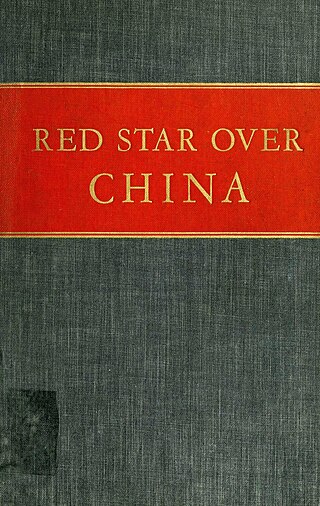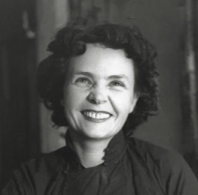
Sanzō Nosaka was a Japanese writer, editor, labor organizer, communist agent, politician, and university professor and a founder of the Japanese Communist Party (JCP). He was the son of a wealthy Japanese merchant, and attended Keio University. While in university, Nosaka became interested in social movements, and joined a moderate labor organization after graduation, working as a research staff member, and as a writer and editor of the organization's magazine. He traveled to Britain in 1919 to study political economy, where he deepened his studies of Marxism and became a confirmed communist. Nosaka was a founding member of the Communist Party of Great Britain, but his activity within British communist circles led to him being deported from Britain in 1921.

Daisaku Ikeda was a Japanese Buddhist leader, author, educator and businessman. He served as the third president and then honorary president of the Soka Gakkai, the largest of Japan's new religious movements. At this time, he became a controversial leader, in Japan and abroad.

Edgar Parks Snow was an American journalist known for his books and articles on communism in China and the Chinese Communist Revolution. He was the first Western journalist to give an account of the history of the Chinese Communist Party following the Long March, and he was also the first Western journalist to interview many of its leaders, including Mao Zedong. He is best known for his book, Red Star Over China (1937), an account of the Chinese Communist movement from its foundation until the late 1930s.

Israel Epstein was a Polish-born Chinese journalist and author. He was one of the few foreign-born Chinese citizens of non-Chinese origin to become a member of the Chinese Communist Party.

Red Star Over China is a 1937 book by Edgar Snow. It is an account of the Chinese Communist Party (CCP) that was written when it was a guerrilla army and still obscure to Westerners. Along with Pearl S. Buck's The Good Earth (1931), it was the most influential book on Western understanding of China as well as the most influential book on Western sympathy for Red China in the 1930s.

The United States Army Observation Group, commonly known as the Dixie Mission, was the first US effort to gather intelligence and establish relations with the Chinese Communist Party and the People's Liberation Army, then headquartered in the mountainous city of Yan'an, Shaanxi. The mission was launched on 22 July 1944, during World War II, and lasted until 11 March 1947.
Koji Ariyoshi (1914–1976) was an American labor activist and a Sergeant in the United States Army during the Second World War.
The wartime perception of the Chinese Communists in the United States and other Western nations before and during World War II varied widely in both the public and government circles. The Soviet Union, whose support had been crucial to the Chinese Communist Party from its founding, also supported the Chinese Nationalist government to defeat Japan and to protect Soviet territory.

Helen Foster Snow was an American journalist who reported from China in the 1930s under the name Nym Wales on the developing Chinese Civil War, the Korean independence movement and the Second Sino-Japanese War.

The Hawaii Democratic Revolution of 1954 is a popular term for the territorial elections of 1954 in which the long dominance of the Hawaii Republican Party in the legislature came to an abrupt end, replaced by the Democratic Party of Hawaii which has remained dominant since. The shift was preceded by general strikes, protests, and other acts of civil disobedience that took place in the Hawaiian Archipelago. The strikes by the Isles' labor workers demanded similar pay and benefits to their Mainland counterparts. The strikes also crippled the power of the sugarcane plantations and the Big Five Oligopoly over their workers.
The US–China Peoples Friendship Association (USCPFA) is a nonprofit educational organization whose stated aim is to develop and strengthen people-to-people diplomacy between the United States and China. According to its website, the group "organizes and conducts educational tours to China, often in conjunction with its continuing exchange with the Chinese People's Association for Friendship with Foreign Countries (CPAFFC)."

Political dissidence in the Empire of Japan covers individual Japanese dissidents against the policies of the Empire of Japan.

Wataru Kaji was the nom de guerre for Mitsugi Seguchi, a Japanese writer, literary critic, and political activist.
Kazuo Aoyama(real name Kuroda Zenji) was a Japanese communist who joined the Republic of China during the Second Sino-Japanese War.

The Japanese People's Emancipation League, also Japanese People's Liberation Alliance and "Free Japan", was an organization formed of the Japanese prisoners of war and anti-war activists with the support of the Japanese and Chinese Communist parties in the Communist-controlled China in 1944, during the Second Sino-Japanese War and World War II. The declared aims of the organisation were the withdrawal of Japanese troops from all occupied territories, the overthrow of the statist militarist system in the Empire of Japan and the establishment of a "democratic people's government". Its members participated in propaganda and military activities during the war.

Ikuo Oyama was a Japanese academic, politician, political scientist and writer.
Throughout the Second Sino-Japanese war (1937–1945), Japanese dissidents and Japanese prisoners of war (POWs) joined the Chinese in the war against the Empire of Japan.

Yoko Matsuoka was a Japanese writer, literary agent, translator, and anti-war and women's rights activist. She was born in Tokyo and was educated in Japan and Korea before being sent to study in the United States in 1931, as a protest to the Asian Exclusion Act. She graduated from Shaker Heights High School in Cleveland, Ohio, in 1935 and earned a degree in political science from Swarthmore College in Pennsylvania in 1939. During her schooling, she became interested in international relations and was active in organizations which promoted peace and friendship. In the interwar era, she was active in the Pan-Pacific Women's Association and attended several youth conferences aimed at developing international cooperation. On her way home to Japan when World War II began, she began to examine the criticism leveled at Japan's militaristic policies.

The Battle for Asia is a book by Edgar Snow, published by Random House in April 1941. It portrays China during the early years of the Second Sino-Japanese War.













